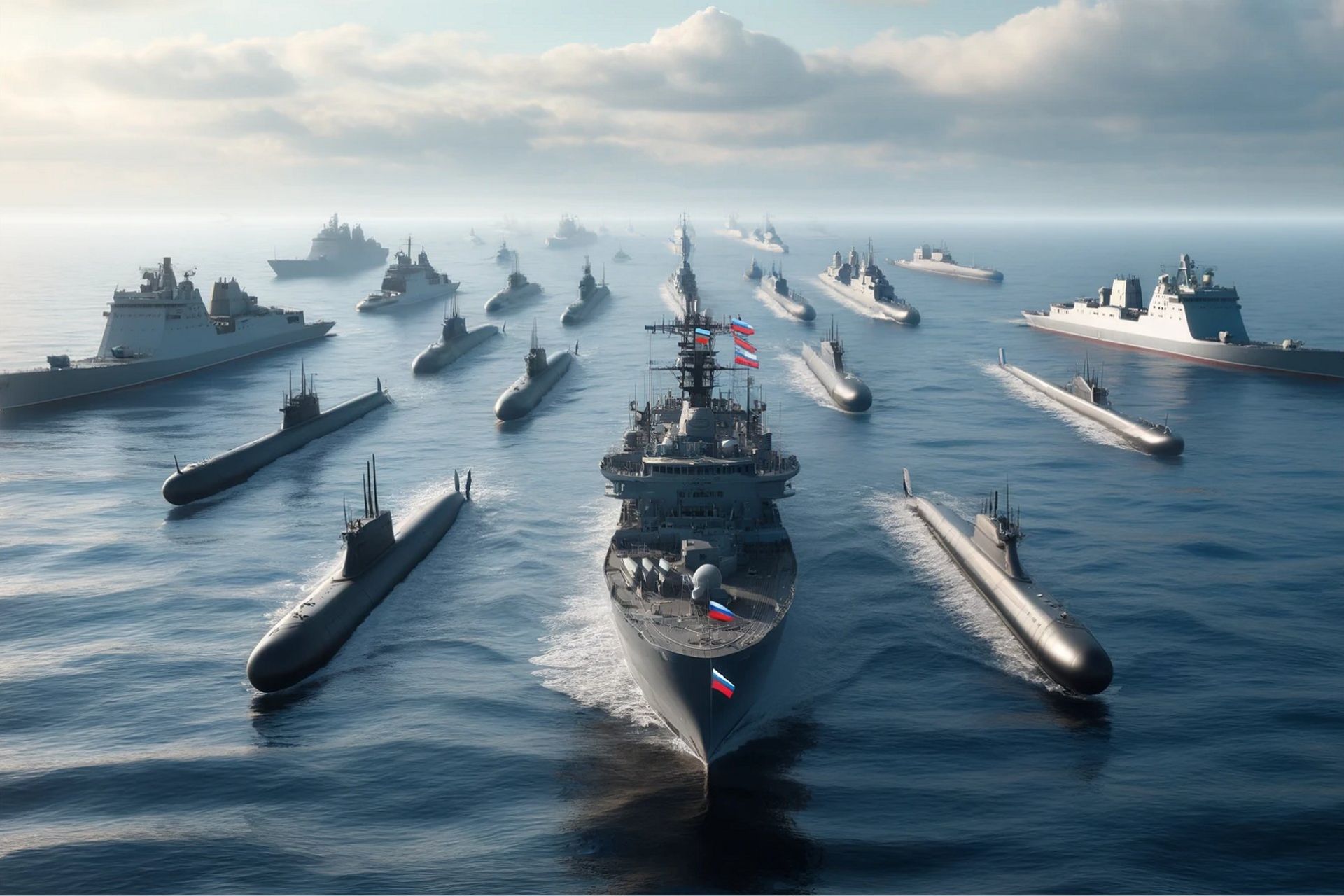Breaking news
Russian Navy to receive 50 ships and support vessels in 2024.
According to information published by Tass on June 2024, the Russian Navy is set to receive around 50 ships and support vessels this year, according to Viktor Yevtukhov, State Secretary and Deputy Minister of Industry and Trade. This includes submarines, frigates, corvettes, small missile ships, and support vessels.
Follow Army Recognition on Google News at this link

Artist rendering of the Russian Navy Fleet. (Picture source: Generated by AI)
In a recent statement, it was noted that Russia has achieved full import substitution in naval shipbuilding, ensuring that no external sanctions can impact the construction and delivery of these vessels. Over the past decade, the Russian Navy has received 40 surface ships and 24 submarines, a notable increase compared to the previous decade.
Russian Navy
Following the collapse of the Soviet Union, the Russian Navy faced severe declines due to reduced defense expenditures, aging equipment, and a struggling shipbuilding industry. However, the early 21st century saw a gradual revitalization, especially with the economic boost from rising oil and gas prices in the early 2000s, which provided the funds needed for modernization efforts.
One of the key focuses has been the submarine fleet. The introduction of the Borei-class nuclear-powered ballistic missile submarines (SSBNs) and the Yasen-class nuclear-powered guided-missile submarines (SSGNs) marked significant advancements. These classes aimed to replace older Soviet-era models and enhance Russia's strategic deterrent capabilities.
The surface fleet has also seen developments, though at a slower pace. The introduction of the Admiral Gorshkov-class frigates represents a significant step in modernizing the fleet. These frigates are equipped for modern anti-submarine and anti-surface warfare, as well as escort duties.
The Steregushchiy-class corvettes have also been developed for coastal patrol and escort duties, indicating a shift towards more versatile, smaller ships better suited for Russia's current naval strategy.
Geopolitical factors have significantly influenced the Russian Navy's development. The annexation of Crimea in 2014 and the ongoing conflict in Ukraine have heightened the strategic importance of the Black Sea Fleet, which has been actively involved in military operations. Similarly, the Northern Fleet has received increased attention due to Russia's interest in the Arctic's economic and strategic potential.
The modernization efforts have not been without challenges. Western sanctions and the refusal of European companies to supply critical components have forced Russia to turn to domestic production and alternative suppliers.


























